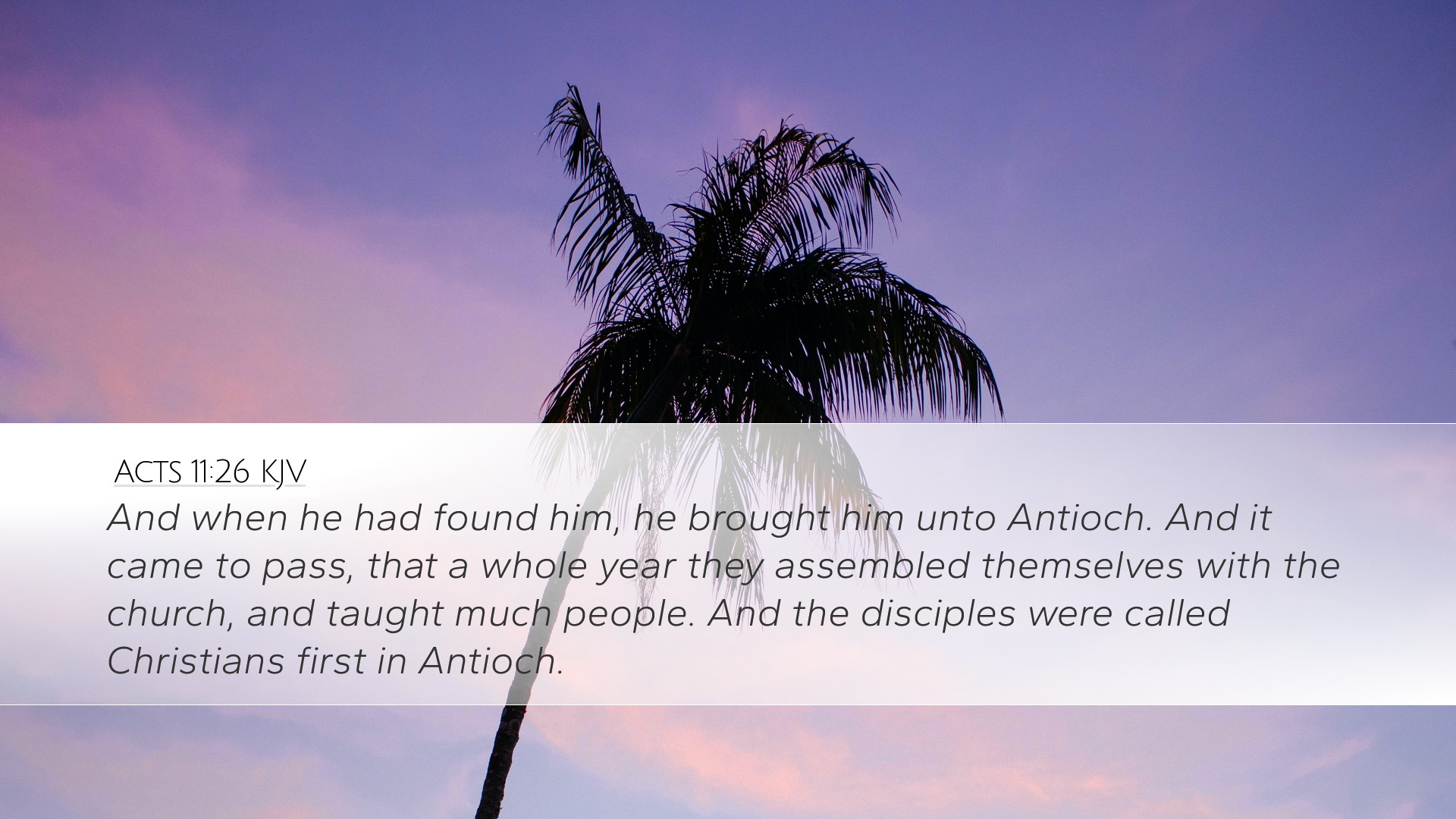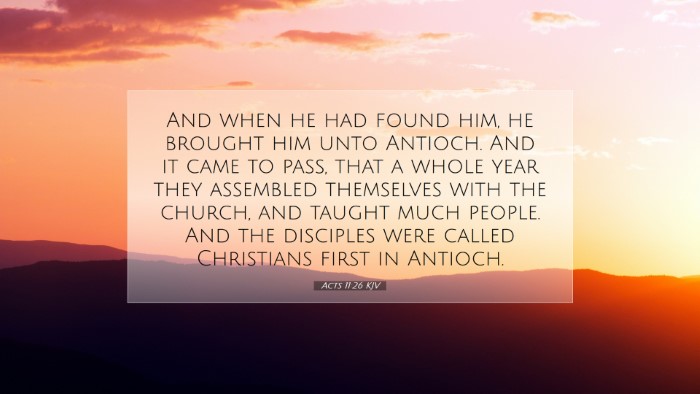Commentary on Acts 11:26
Bible Verse: “And when he had found him, he brought him unto Antioch. And it came to pass, that a whole year they assembled themselves with the church, and taught much people. And the disciples were called Christians first in Antioch.” (Acts 11:26)
Contextual Background
Acts 11:26 presents a significant moment in the growth of the early church. Following the scattering of believers due to persecution, the apostles found fertile ground for the gospel in Antioch. This city, known for its cultural diversity, became a strategic location for the expansion of Christianity beyond its Jewish roots.
Insights from Public Domain Commentaries
Matthew Henry's Commentary
Matthew Henry emphasizes the importance of Antioch as a key center in the first-century church. He notes that Barnabas, upon discovering the grace of God in Antioch, sought Saul (Paul) for assistance. The partnership of Barnabas and Paul symbolizes the collaborative spirit necessary for church growth. Henry states:
“They taught much people; a good minister is one that is diligent in preaching, and a good congregation is one that is willing to learn.”
Henry points out that it was in Antioch, through the devoted teaching and discipleship led by Barnabas and Paul, that followers of Jesus were first called Christians, which indicates a significant shift in identity for these believers.
Albert Barnes's Notes on the Bible
Barnes elaborates on the significance of the term “Christians.” He explains that this name was likely a label applied by outsiders to distinguish the followers of Christ from the Jews and pagans. Barnes remarks:
“It implies a new and distinct community, united by faith in Christ, setting the stage for the expansion of the faith to the Gentiles.”
He stresses that this name represented not just an identity but a lifestyle reflective of the teachings and example of Jesus. Barnes observes that the church in Antioch became a model for future Christian congregations.
Adam Clarke's Commentary
Adam Clarke provides a detailed analysis of the historical context of the term “Christians.” He argues that this designation was not self-chosen but was a moniker given by others, indicating an acknowledgment of the radical transformation in those who believed in Christ.
“This name indicates a profession, a lifestyle, and a commitment to the principles Christ embodied.”
Clarke also highlights the year of teaching as foundational in establishing the doctrine and work of the church. He expresses that the teaching in Antioch was instrumental in nurturing faith and promoting unity among diverse followers of Christ.
Theological Implications
The passage invites reflection on several theological themes:
- Discipleship: The necessity of teaching and growing in faith, as emphasized by Barnabas and Paul, highlights the importance of discipleship in the Christian life.
- Identity in Christ: The use of the term "Christian" reveals the shift in identity for believers who are no longer defined by their heritage but by their relationship with Christ.
- Inclusivity of the Gospel: The ministry in Antioch signifies a pivotal movement toward a more inclusive church, welcoming Gentiles and breaking down ethnic barriers.
Practical Applications for Today’s Church
This verse provides powerful insights for contemporary church communities:
- Value of Community: The early church thrived through collective teaching and fellowship. Modern congregations are encouraged to invest in communal spiritual growth.
- Commitment to Teaching: Pastors and leaders are reminded of their calling to equip the saints through sound doctrine and encouragement, fostering a deep understanding of Scripture.
- Embracing Diversity: Just as Antioch showcased a blend of cultural backgrounds, today’s churches must strive to be inclusive, reflecting the body of Christ’s unity amid diversity.
Conclusion
Acts 11:26 marks a transformative period in Christian history where the followers of Christ began to establish their identity as “Christians.” The groundwork laid during this time in Antioch speaks to the importance of fellowship, teaching, and unity among believers. As we reflect on this verse and its implications, we are called to embody the teachings of Christ and nurture a vibrant community that honors His name.


